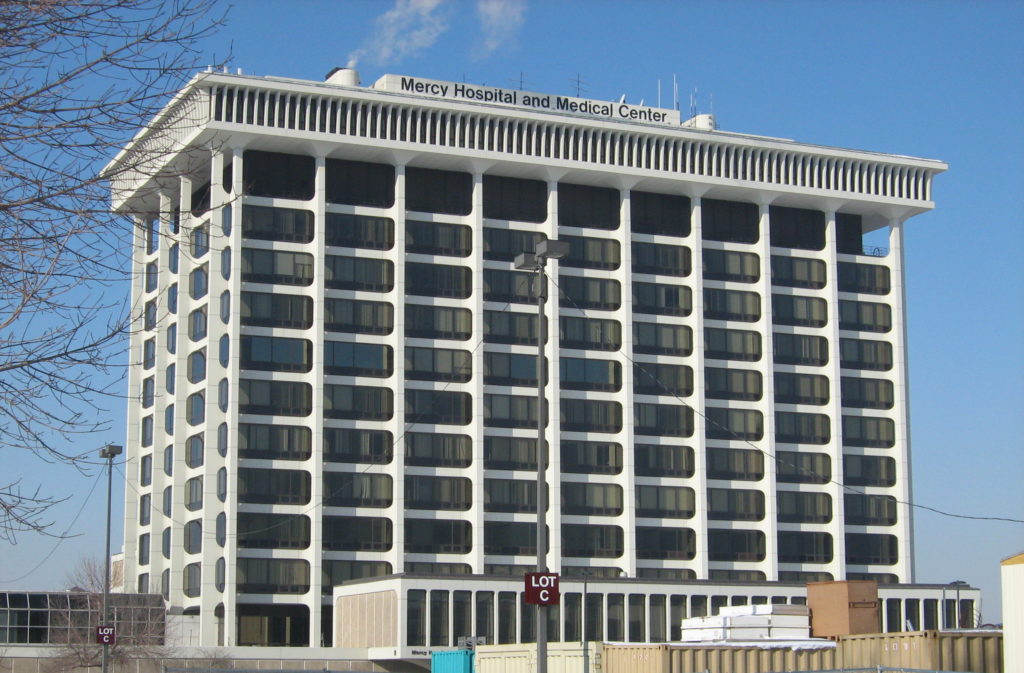
By Jordan Rau and Emmarie Huetteman | KHN
Victor Coronado felt lightheaded one morning last month when he stood up to grab an iced tea. The right side of his body suddenly felt heavy. He heard himself slur his words. “That’s when I knew I was going to have a stroke,” he said.
Coronado was rushed to Mercy Hospital & Medical Center, the hospital nearest his home on Chicago’s South Side. Doctors there pumped medicine into his veins to break up the clot that had traveled to his brain.
Coronado may outlive the hospital that saved him. Founded 168 years ago as the city’s first hospital, Mercy survived the Great Chicago Fire of 1871 but is succumbing to modern economics, which have underfinanced the hospitals serving the poor. In July, the 412-bed hospital informed state regulators it planned to shutter all inpatient services as soon as February.
“If something else happens, who is to say if the responders can get my husband to the nearest hospital?” said Coronado’s wife, Sallie.
While rural hospitals have been closing at a quickening pace over the past two decades, a number of inner-city hospitals now face a similar fate. And experts fear that the economic damage inflicted by the COVID-19 pandemic on safety-net hospitals and the ailing finances of the cities and states that subsidize them are helping push some urban hospitals over the edge.
By the nature of their mission, safety-net hospitals, wherever they are, struggle because they treat a large share of patients who are uninsured — and can’t pay bills — or are covered by Medicaid, whose payments don’t cover costs. But metropolitan hospitals confront additional threats beyond what rural hospitals do. State-of-the-art hospitals in affluent city neighborhoods are luring more of the safety-net hospitals’ best-insured patients.
These combined financial pressures have been exacerbated by the pandemic at a time their role has become more important: Their core patients — the poor and people of color — have been disproportionately stricken by COVID-19 in metropolitan regions like Chicago.
“We’ve had three hospital closures in the last year or so, all of them Black neighborhoods,” said Dr. David Ansell, senior vice president for community health equity at Rush University Medical Center, a teaching hospital on Chicago’s West Side. He said the decision to close Mercy “is really criminal in my mind, because people will die as a result.”
Mercy is following the same lethal path as did two other hospitals with largely lower-income patient bases that shuttered last year: Hahnemann University Hospital in Philadelphia, and Providence Hospital in Washington, D.C., which ended its inpatient services. Washington’s only public hospital, United Medical Center — in the city’s poorest ward — is slated to close in 2023 as well, and some services are already curtailed.
Slow Death of Urban Safety Nets
So far, urban hospital closures have remained infrequent compared with the cascading disappearance of their rural counterparts. But the closing of a few could portend problems at others. Even some of those that remain open may cut back crucial specialties like labor and delivery services or trauma care, forcing patients to travel farther for help when minutes can matter.
Nancy Kane, an adjunct professor at Harvard T.H. Chan School of Public Health who has studied urban safety-net hospital changes since 2010, said that “some close, but most of them have tried to get into a bigger system and hang on for a few more years until management closes them.”
For much of the 20th century, most cities ran their own hospitals to care for the indigent. But after the creation of Medicare and Medicaid, and as the rising cost of health care became a burden for local budgets, many jurisdictions turned away from that model. Today only 498 of 5,230 general hospitals in the country are owned by governments or a public hospital district.
The story continues at khn.org
Kaiser Health News is a nonprofit news service covering health issues. It is an editorially independent program of Kaiser Family Foundation, which is not affiliated with Kaiser Permanente.
Image shows Mercy Hospital & Medical Center in Chicago (Wikimedia: xnatedawgx / CC BY-SA 2.0)

